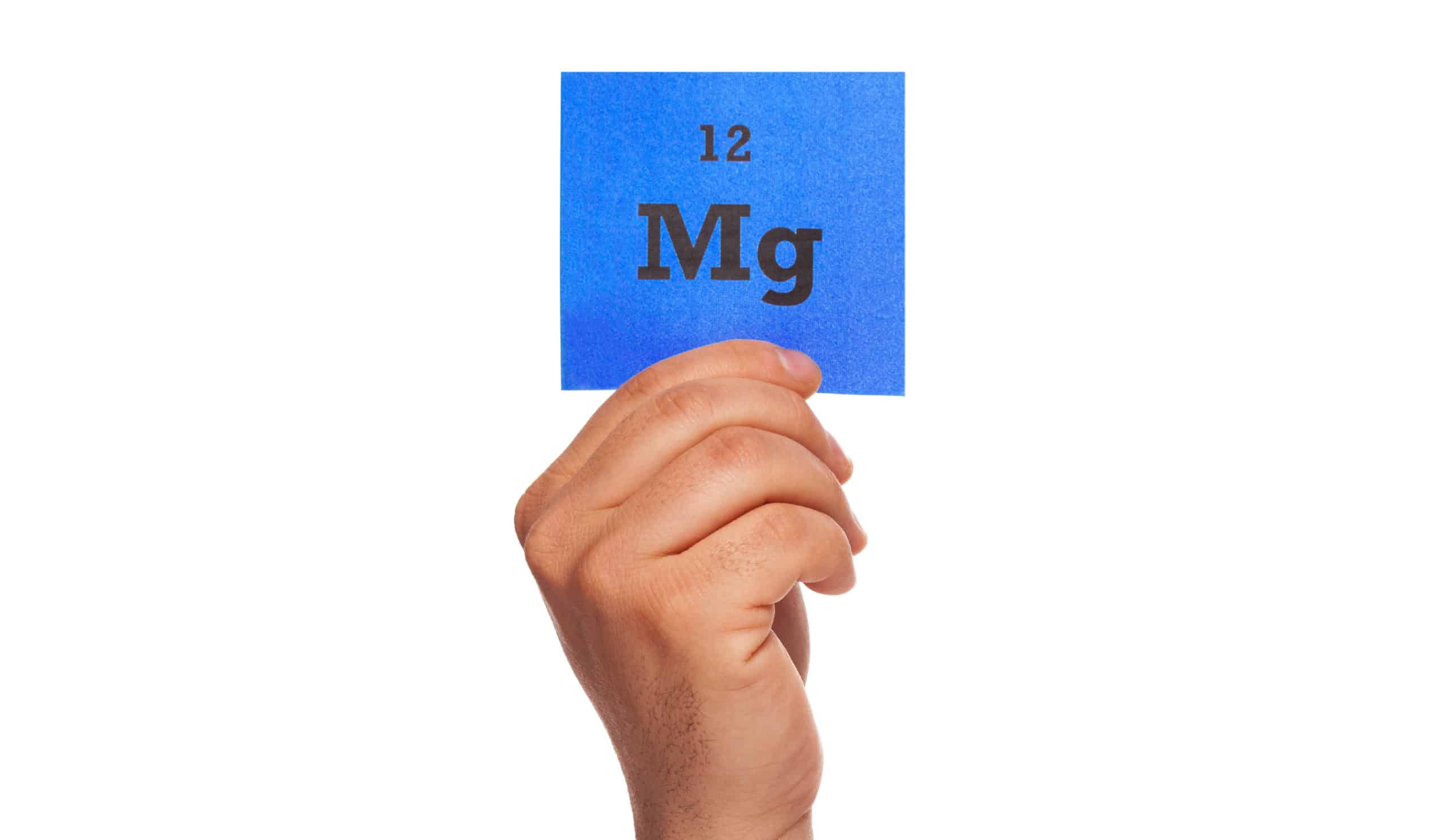Magnesium And Heart Health
It’s time to celebrate magnesium and heart health!
Magnesium is the single most heart protective mineral of all time.
As February is Heart Health month, keep in mind that magnesium protects against and treats cardiovascular disease and mitral valve prolapse—two of the top health concerns in North America.
While calcium has long been touted as the #1 mineral, I’m excited to say that the benefits of a magnesium supplement go above and beyond calcium, even where bone density is concerned.
Magnesium can even prevent premature aging of the brain!
Amazing Benefits of Magnesium
- Improved sleep
- Reduced anxiety
- Relaxed muscle tension
- Lowered blood pressure
- Improved muscle-building
- Lowered risk of osteoporosis
- Healthier teeth and gums
- Better pH balance and hydration
- Improved elimination
- Balanced blood sugar
Upwards of 80% of the population is deficient in magnesium, a crucial mineral that is essential to heart health and over 350 metabolic processes in our bodies.
In America, 2 out of 3 people don’t even come close to the Recommended Dietary Intake of 500 mg of magnesium daily—although I typically recommend 400-1000 mg—which I’d say is a pretty severe statistic!
Even if you have a good plant-based diet including magnesium-rich foods like beet greens, mustard greens, basil, almonds and pumpkin seeds, it is still possible to be deficient.
The most effective way to uncover your unique individual magnesium status is with a simple blood test called MagRBC. I have found that the most desirable range for magnesium in this test is between 6.0-7.0 mg/dL, although most reference ranges note 4.0-6.8 mg/dL.
Studies on my own patients have revealed magnesium deficiency in 9 out of 10 people!
In fact, many of my colleagues believe that low levels of Vitamin D are another indicator of magnesium deficiency, indicating the one benefit of magnesium supplementation is improved vitamin D and calcium metabolism.
That’s why I recommend UNI KEY’s natural multivitamins for men and multivitamins for women—which contain vitamin D3 and the proper ratio of calcium to magnesium for heart health. Heart-damaging iron has been taken out of the equation for men and post-menopausal women, too.
To exacerbate the problem, many prescription drugs actually lower magnesium levels- drugs including acid blockers, antacids, antibiotics and antivirals, blood pressure modulators, hormone replacement therapy and oral contraceptives, corticosteroids and sulfonamides.
Other factors that significantly interfere with magnesium retention are alcohol use, coffee intake, a diet high in sugar, mineral oil in personal care products, high cortisol levels, and estrogen dominance.
Getting to the Heart of the Matter
Symptoms of magnesium deficiency can include muscle weakness, and even tremors or spasms. When you consider that your heart is a muscle, those symptoms are very troubling. Rapid heart rate, atrial fibrillation and irregular contraction are all complications of magnesium deficiency.
How sad it is that cardiologist never mention magnesium and heart health to their patients? It’s not surprising that heart disease is the #1 killer.
There are many different forms of magnesium, all with their own unique benefits. Magnesium oxide is quite good at relieving constipation.
Magnesium glycinate is very calming and promotes restful sleep. But when it comes to magnesium and heart health, you can’t beat magnesium taurinate.
In this form, magnesium and taurine team up to create enzymes that contribute to heart muscle contractility, regulate the amount of calcium moving in and out of the cell to generate nerve impulses, and stabilize the cell membranes by neutralizing free radicals.
Where Magnesium Saves the Day…
Diabetes – Magnesium is necessary for insulin production and the creation of ATP for cellular energy.
High Blood Pressure – By supporting healthy potassium levels, magnesium relaxes constricted blood vessels and allows the heart to pump a greater volume of blood- making your cardiovascular system more efficient.
Preeclampsia – Mothers and babies are both at risk when this condition is present. Transdermal magnesium supplementation throughout pregnancy can help treat or even prevent preeclampsia. Babies born under these conditions are facing major blood pressure complications, too. In an experimental trial, 7 babies who did not respond to medication and were expected to die due to high blood pressure were given magnesium sulfate injections which normalized blood pressure and saved their lives.
Mitral Valve Prolapse – This condition increases magnesium excretion, so oral supplementation with magnesium taurinate reduces or even eliminates the problem, and also helps correct low blood sugar and fatigue, the two most common complaints associated with mitral valve prolapse.
Migraines – An IV push of magnesium can significantly relieve migraine headaches and even reduce their frequency.
Fibromyalgia – Combined with 1-2 grams of malic acid, magnesium reduces the joint pain and muscle aches of fibromyalgia and chronic fatigue syndrome.
Pre-Menstrual Syndrome (PMS) – Mood swings, cramps, fatigue, headaches and yeast infections related to PMS were soothed by topical and oral magnesium supplementation.
You can read up on balancing other minerals in your body in my recent blog on copper imbalance symptoms, The Copper Conundrum, which highlights the benefits of the Tissue Mineral Analysis Test that is available through Uni Key Health.










14 Responses
Please tell what I can don for hair thinning. I have been tested for thyroid,take biotin,cell food celiac,once in awhile iron tabs.
Constance: Please consider a TMA — avaiable from UNI KEY — which will show your mineral imbalances and hormonal profile. If you need the direct link, let me know but it can be viewed via http://www.unikeyhealth.com with the Search Function.
It’s such an amazing life saving mineral. Thank you for mentioning all of the specific situations that it treats.
Ann Louise – I take Gabapentin 600 mg 3 x day. It says not to take aluminum or magnesium antacids within 2 hours of taking the gabapentin. can you tell what is safe to take as far as mag? I have neuropathy and that’s why I’m taking it. thank you
Vicki: You are fine with any type of mag – glycinate, taurinate, or malate. They won’t interact like an antacid with your Gabapentin.
this is some very useful tips . i have been told by my doctors to use calium and magnesium pills and i have been using those for quite a few years.
I have osteoporosis. The drugs I was given effected my digestion I stopped taking them. having listened to your gut seminar, I have tried finding a naturist practitioner in the UK. No success. advice would be good, can you help?
Hi Daniela, The Hair Tissue Mineral Analysis available through UNI KEY Health will give you deep insight into how your mineral balance affects your bone health and digestion. The test measures adrenal and thyroid function, determines metabolic type, uncovers blood sugar dysregulation and shows toxic heavy metals. Dietary and supplement recommendations are made to suit your unique profile and bring mineral levels into harmony with one another. https://www.unikeyhealth.com/tissue-mineral-analysis
I would like your advice for osteoporosis. I am post menopausal was on drugs for the above. Have stopped them as negative effect on everything nerves & gut. I have ordered your book re parasite cleanse, however since there is no naturopath here in the UK I find I am alone with this process. Cleanse & nutrition. I am gluten free & A blood group. thanks
What is the best meal to take Magnesium Taurinate, breakfast or dinner, for Mitral Valve Prolapse?
To keep levels consistent throughout the day, you could take 200-400 mg with both breakfast and dinner.
Can hair analysis be accurate if the hair has been dyed and permed?
Yes, if the specific hair preparations are noted they can be accounted for in the reading of your results!